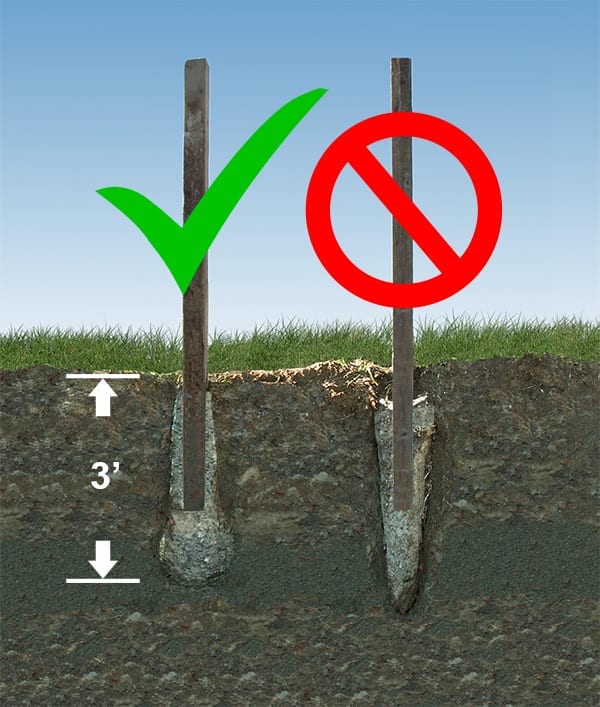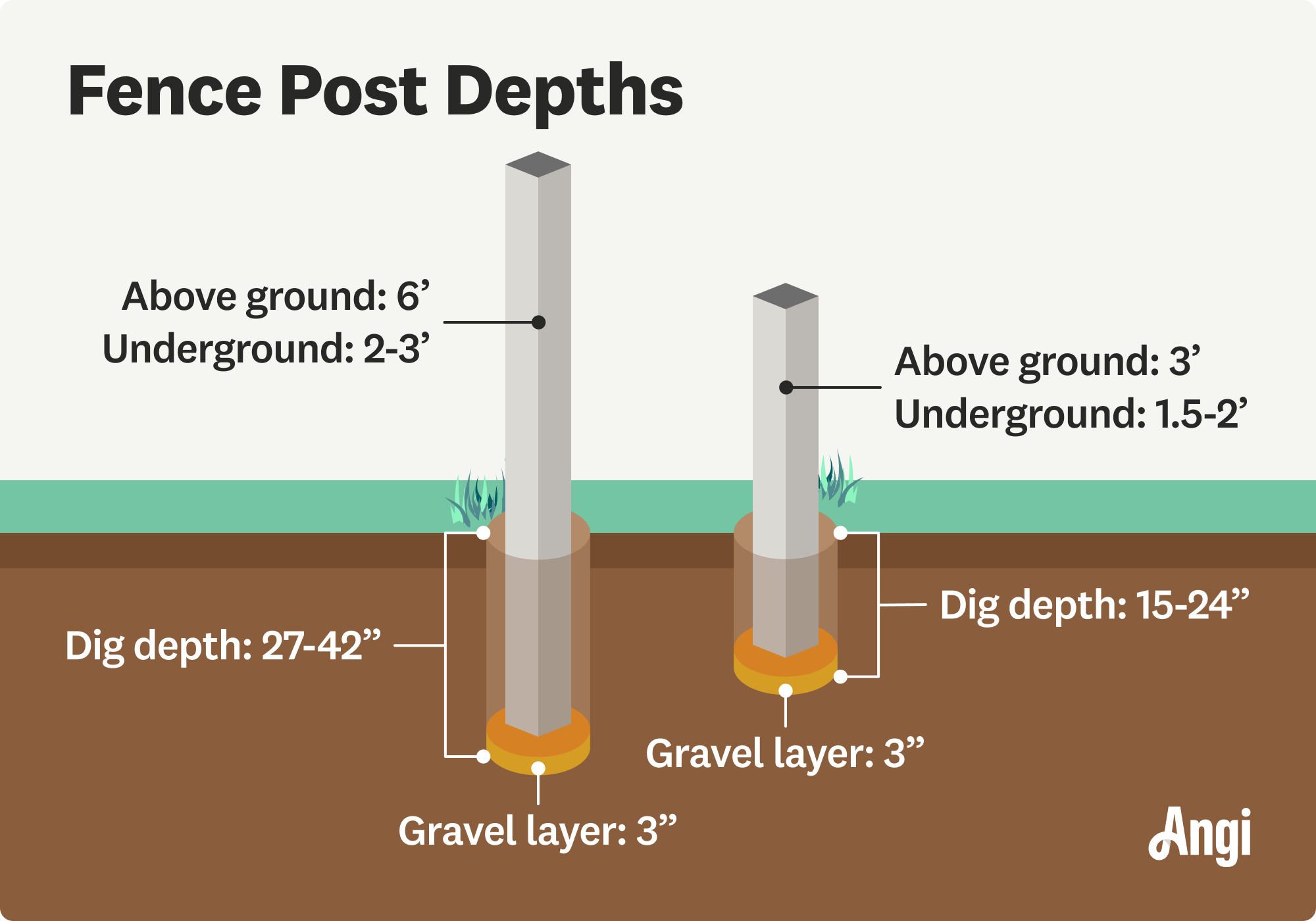Ever wondered how deep you can dig on your property? It’s a question many homeowners ponder, especially when planning a new garden, pond, or construction project.
But before you grab a shovel, there are a few things you should know. Digging too deep without the right information can lead to unexpected legal issues or even put your safety at risk. You’re not just dealing with soil; there’s a world of regulations, utility lines, and environmental factors lurking beneath your feet.
Curiosity is your ally here, and understanding the boundaries and possibilities can empower you to make informed decisions. So, let’s unravel the mysteries beneath your property and ensure that your digging adventures are both safe and rewarding. Dive in with us and discover the depths of knowledge you need to explore your land confidently!
Property Ownership And Rights
Understanding property ownership and rights is crucial for landowners. It determines what you can do with your land. You might think owning land gives you total control. But there are different types of rights to consider. These rights dictate how deep you can dig.
Surface Rights Vs. Subsurface Rights
Surface rights refer to what lies on top of the land. This includes buildings and vegetation. You can build a house or plant a garden. Subsurface rights deal with what lies beneath. This includes minerals and resources. These rights can be owned separately from surface rights. Sometimes, someone else owns the subsurface rights. They might have the right to mine or drill.
Historical Context Of Property Rights
Property rights have a long history. Early property laws were simple. Over time, they became complex. In medieval times, kings often controlled land. Landowners had limited rights. As societies evolved, laws changed. Modern property rights offer more freedom. They provide clearer boundaries. This helps landowners understand their rights.
Legal Framework For Digging
Digging on your property isn’t as simple as grabbing a shovel. Laws dictate how deep you can dig. These rules ensure safety and protect resources. Understanding these laws is crucial. This section explores important regulations. Let’s dive into local and state laws.
Local Zoning Laws
Local zoning laws vary by region. They control land use and development. Zoning laws determine what you can do on your property. They include rules on digging depth. Violating these laws can lead to penalties. Always check with your local zoning office. They provide guidelines for your area. This ensures you comply with local regulations.
State Regulations
State regulations also impact digging permissions. These rules can differ widely. They cover environmental concerns and safety standards. Some states have strict rules on excavation. This includes digging near historical sites. Others focus on utility lines and natural resources. Always research your state’s requirements. Consulting with a legal expert is wise. They help you understand state-specific regulations.
Permits And Approvals
Digging depth on property requires understanding local permits and approvals. Laws vary by region, affecting how deep one can dig. Consulting local authorities ensures compliance with regulations and avoids penalties.
Digging deep into the ground on your property might seem straightforward, but it involves more than just picking up a shovel. Before you begin, understanding the permits and approvals required can save you from legal troubles and costly mistakes. Whether you’re planning to build a basement, install a pool, or even just improve drainage, you need to navigate through various permissions to ensure your project is legal and safe.Types Of Permits Required
Different projects demand different types of permits. For most residential digging activities, you’ll need a zoning permit. This ensures your project aligns with local land-use regulations.If your project involves significant excavation, like building a basement or a swimming pool, a building permit is essential. This confirms that the structure you’re planning is safe and meets all building codes.Additionally, you might need environmental permits if your digging could impact local ecosystems, like wetlands or protected areas. Always check with your local authorities to know exactly what’s required for your specific project.Application Process
Applying for permits can be daunting, but breaking it down makes it manageable. Begin by gathering all necessary documentation, including detailed plans of your intended project. Accurate and comprehensive plans can speed up the approval process.Next, visit your local government office or website. Many municipalities offer online applications, simplifying the submission process. Be prepared to pay application fees, which vary depending on the permit type and your location.Once submitted, patience is key. Approval times can vary, but staying in touch with the authorities can help you track progress. Remember, rushing the process can lead to costly mistakes—take the time to do it right.Have you ever considered how deep you can dig without a permit? While it might be tempting to skip this step, the risks often outweigh the rewards. By ensuring all permits are in place, you safeguard your investment and peace of mind.
Credit: fenceall.com
Environmental Considerations
Digging on your property involves more than picking up a shovel. Environmental considerations play a crucial role in how deep you can dig. Understanding these factors ensures you respect nature and adhere to legal guidelines. Let’s explore the essential environmental aspects to keep in mind.
Impact Assessment
Before any digging, assess the impact on local ecosystems. Consider how excavation might affect soil quality and water sources. Wildlife habitats can be disturbed, risking local biodiversity. Evaluating these impacts helps in making informed decisions.
Consult with environmental experts for a thorough assessment. They offer insights into potential risks and solutions. Their expertise ensures your digging plans align with environmental sustainability.
Conservation Regulations
Legal regulations protect natural resources during excavation. These rules vary by region and can influence your digging plans. Check local laws for restrictions on depth and areas you can dig.
Some regions require permits for significant excavation projects. Permits ensure you follow conservation standards, preserving the environment. Understanding these regulations helps avoid legal issues.
Conservation regulations aim to balance development with environmental protection. Adhering to these rules is crucial for responsible property development.
Potential Legal Disputes
Digging deep on your property may lead to legal disputes. Understanding these potential issues is crucial before starting any excavation. Homeowners need to be aware of the boundaries and rights associated with their land. Laws vary, making it essential to research local regulations. Missteps could result in neighbor conflicts or even legal battles.
Neighboring Property Conflicts
Digging near property lines may upset neighbors. It’s important to communicate your plans clearly. A lack of communication can lead to misunderstandings. Neighbors might worry about damage to their land. Excavation can affect structures and landscapes. Protecting neighbor relations is key to avoiding disputes.
Resolving Disputes
Resolving conflicts starts with open dialogue. Listening to concerns can ease tensions. Mediation is a helpful tool for finding solutions. It offers a neutral space to discuss issues. Legal advice may be necessary for complex cases. Consulting a property lawyer can clarify rights and obligations. Aim for a mutual agreement to maintain peace.
Case Studies
Understanding how deep you can dig on your property involves more than just tools and manpower. Legal challenges often arise. Some cases have set important precedents. These examples help illustrate the complexities involved.
Notable Legal Cases
One of the most famous cases involved a homeowner who dug a deep basement. His neighbor claimed that the digging affected their home’s foundation. The court ruled in favor of the neighbor. This highlighted the impact of deep digging on surrounding properties.
Another case saw a landowner digging a well, hitting an underground water supply. The city intervened, citing water rights issues. The case went to court. The city won, emphasizing the importance of understanding underground resources.
Lessons Learned
These cases teach valuable lessons. Always check local laws before digging. What lies beneath your property might belong to someone else. Soil and water rights can limit how deep you dig.
Consult professionals for site assessments. They can identify potential legal issues. This proactive step can prevent costly legal battles.
Neighbors’ properties can be affected by your digging. Ensure your plans consider the impact on nearby structures. Clear communication with neighbors can prevent disputes.
Professional Guidance
Understanding property digging limits requires expert advice. Local regulations often dictate how deep you can dig on your land. Professional guidance ensures compliance and safety, protecting your investment.
When considering how deep you can dig on your property, the importance of professional guidance cannot be overstated. Whether you’re planning a simple garden pond or a large-scale basement renovation, seeking professional advice ensures you stay within legal boundaries and maintain the structural integrity of your property. Professional guidance can save you from costly mistakes and unforeseen complications.Hiring Legal Experts
Engaging a legal expert can be a crucial first step. They can help you understand local zoning laws and property rights. This might sound daunting, but imagine the peace of mind knowing you’re not accidentally digging into a utility line or infringing on a neighbor’s property.Legal experts can also assist with any permits you might need. Often, people assume they can dig freely on their land, only to find out permits are required for certain depths or areas. A legal professional can clarify these requirements and help you navigate the paperwork efficiently.Consulting With Engineers
Before you grab a shovel, consulting with an engineer can provide valuable insights. Engineers can assess the soil type and water table levels, ensuring your project is safe and feasible. Have you ever thought about how soil composition could impact your digging plans?Engineers can also help you understand the structural implications of your digging project. For example, if you’re considering a basement addition, an engineer can advise on necessary reinforcements to prevent future issues. This step not only protects your investment but also ensures the safety of your home and family.By proactively seeking professional guidance, you can avoid unexpected surprises and ensure your project is successful. Have you considered how much a small consultation could save you in the long run?
Credit: twitter.com

Credit: www.angi.com
Frequently Asked Questions
How Deep Can You Legally Dig On Your Property?
Local laws limit digging depth. Check with your city or county for specific regulations. Avoid utility lines.
What Happens If I Dig Too Deep?
You might hit utility lines or violate laws. Repairs and fines can be expensive. Always check before digging.
Do I Need Permission To Dig?
Yes, if digging deep or near utilities. Contact local authorities to check requirements. It’s safer and legal.
Can I Dig Near Property Boundaries?
It’s risky. You might affect neighboring land or utilities. Always check property surveys and get permission.
How To Find Underground Utilities Before Digging?
Contact local utility companies. They can mark lines. It prevents damage and ensures safety. Always call before you dig.
Conclusion
Digging on your property requires careful planning and research. Always check local regulations. Knowing the rules can save you time and money. Consult professionals before starting any major project. They can provide guidance and ensure safety. Avoid surprises by understanding your land’s limitations.
It’s essential for successful digging. Respect environmental guidelines to protect your surroundings. Proper planning leads to efficient and safe excavation. Stay informed and make well-considered decisions. This ensures you dig within legal and safe boundaries. Happy digging!
